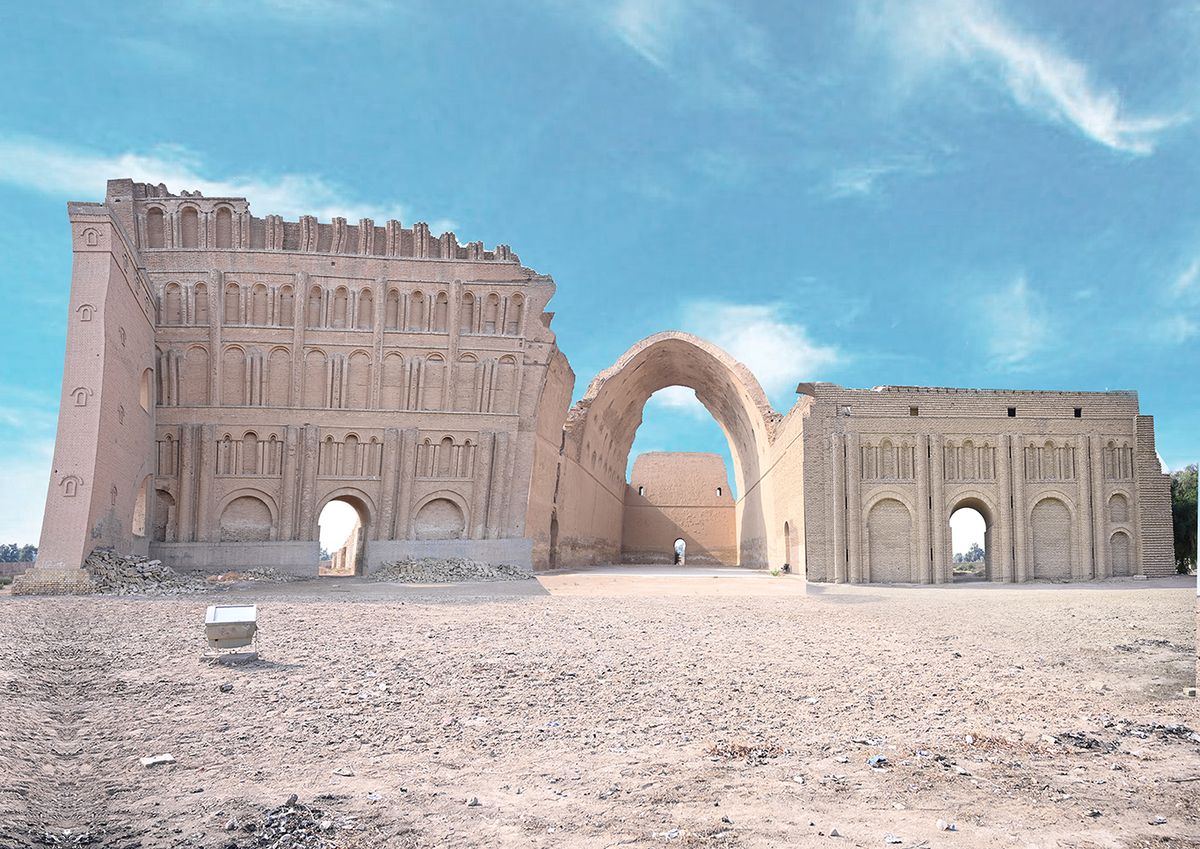Tackling a pressing conservation challenge, the Geneva-based International Alliance for the Protection of Heritage in Conflict Areas (Aliph) announced today that it had approved a $700,000 grant for stabilisation of the endangered Arch of Ctesiphon, or Taq Kasra, south of Baghdad.
The world’s largest brick vault and the biggest freestanding arch built before modern times, Taq Kasra suffered partial collapses in 2019 and 2020 and is in urgent need of shoring up, Aliph said in a joint statement with the Iraqi Culture Ministry. Thought to have been built between the third and sixth centuries, the 37m-high, 26m-wide arch was part of a palace complex and is all that remains standing of Ctesiphon, a city that was ruled by the Sassanids as a royal capital of the Persian Empire.
Aliph, a nonprofit foundation that tends to heritage in post-crisis areas, says it was contacted last October by the Iraqi Culture Ministry for assistance. The foundation financed a conservation assessment and 3D documentation of the site with photographs and high-resolution scans in November.
With the $700,000 grant, the University of Pennsylvania’s Iraq Heritage Stabilization Program and the Consultancy for Conservation and Development company can now embark on emergency measures such as installing scaffolding that will take the load off the site’s parabolic arch and adjust to the expansion and contraction of materials from temperature fluctuations. Sensors will be installed to monitor cracks, and staff members from the Iraqi State Board of Antiquities and Heritage will be trained to manage the equipment and interpret data.
Once the scaffolding is in place and the arch is stablised, Aliph says, teams will use the photographs, scans and sensor data to draft a full conservation plan.
Founded in 2017 in response to the destruction of cultural heritage, Aliph has so far funneled $35m to over 100 projects in 22 countries, including 28 efforts in war-torn Iraq.


